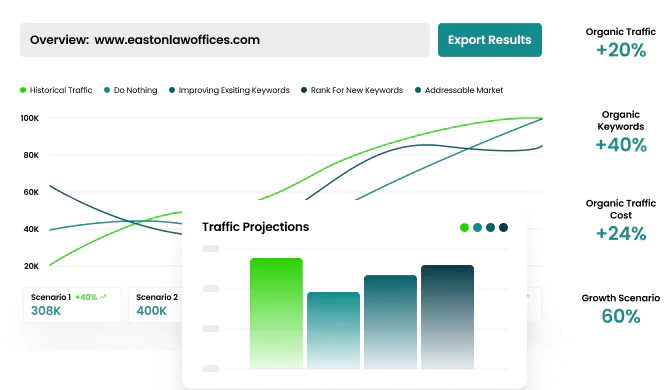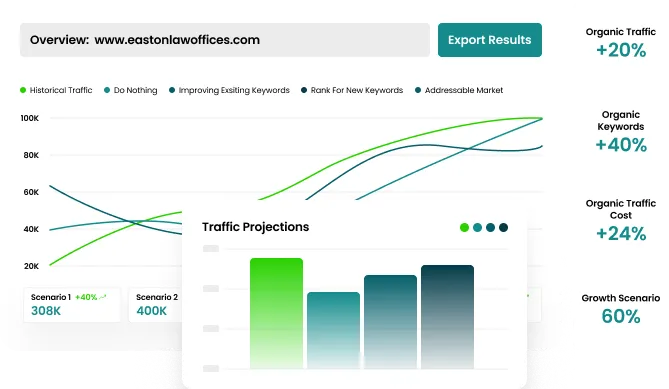9 Tips to Create Valuable Content for Your Law Firm’s Blog

When you run a law firm, it’s likely that your clients are your top priority. A major way to serve your existing clients while attracting new ones is to make sure your website is up to date and ranks well in search engine results. While this does involve keyword research, optimization, and paid ads, a significant player in website ranking is creating valuable, high-quality content for your site. This often gets overlooked and can have a drastic effect on your site traffic.
If you have content that is outdated, poorly written, inadequately researched, or disorganized, users will likely become frustrated with your site and move on. This hurts your bounce time and ultimately decreases your position in search engine results.
What Constitutes Good Content?
The exact content will change from industry to industry, but there are certain qualities of good website content that can be applied as standards for all types of businesses. Good content should do one or more of the following:
- Inform the reader of something new.
- Help the reader complete a task or solve a problem.
- Answer the reader’s question.
- Entertain the reader.
- Inspire the reader.
If your content is fulfilling one of these needs, you are on the right track. However, presentation matters too. Your content should be all of the following:
- Organized
- Well written
- Approachable
- Well researched
- Evergreen (remains relevant regardless of time, place, or season)
Following these standards, you can create content that is on its way to boosting your website traffic. However, we have more tips to help you ensure your blog’s success.
1 Research Your Audience
What your audience is interested in reading might be very different from what you think they need to know. Making guesses about topics, keywords, and formats that will draw in readers is a waste of time and resources. Instead, make sure that you do research and find out definitively what your clients want to see. There are tangible, logical data points that can inform your writing, and through these research processes, you not only pull in readers, but you also beat the algorithm.
2 Prove Your Credibility
Your content should be approachable, yes, but it also should show that you know what you’re doing. The best way to combine these two concepts is by following your information with examples, case studies, statistics, or legal processes. This information remains readable and understandable to most people but also shows that you have information and examples to back up what you are saying. This increases credibility and builds trust between you and your new clients.
3 Break Down Information
The way we consume information in the modern world is very different than it used to be. There is so much available on the internet that it is easy to become fatigued or overwhelmed by large articles, regardless of topic. Break up your content with subheadings, bullet lists, graphics, and fresh paragraphs to give readers a more scannable document. You are more likely to attract audiences with information that has a digestible layout than a full page of text, regardless of how thorough and accurate the information is. At the end of the day, it’s best to be concise and clear.
4 Edit
Ensure that the writing on your website has proper grammar and punctuation. Thoroughly edit all your information, and make sure that it makes sense and flows well. After you edit, have at least two other people read it to ensure that you have achieved your goal with the content and that everything is clear.
5 Create Original Content
You have to remember that the internet is a vast place. Because of this, you have to give potential clients a reason to visit your site over your competitors. If you write basic information without a personal spin or new perspective, audiences have no reason to click on your site because they have either read the information elsewhere or can find it on a more popular site. Especially when you are growing your business, make sure the content is fresh, new, and has never been done before.
6 Remain Approachable
Especially in law, it is easy to get very technical with your information. There are a lot of terms, phrases, and concepts that are second nature to you as an attorney but that are not general knowledge. Remember this when you are writing. If your audience gets confused by too many words or is intimidated by the language or concepts, they will leave and likely never come back. It is your challenge as the attorney to distill the necessary information into terms the public understands.
7 Don’t Insult Your Audience’s Intelligence
The flip side of the above suggestion is that audiences will also leave if they feel they are being talked down to or treated as if they are stupid. While you want to put things into concepts that they can understand, it’s also important to treat them as intelligent adults. Creating this balance is difficult, but it is essential to creating high-quality content that audiences want to read.
8 Create Varying Objectives
As we mentioned above, there are several objectives to creating online content, such as to inform, to help, to answer a question, etc. When you are creating content for a blog, be sure that you change objectives with each post. If your last post was an informative post about divorce, for example, your next post should answer a question or provide an action plan. Even if the practice area remains the same, vary your objective to diversify your content.
9 Contact a Professional
Creating high-quality content is challenging, especially if you have a law practice to balance at the same time. Hiring a professional digital marketing agency to help you create quality content can ensure that you’re hitting all the right points without having to lift a finger.
RizeUp Has You Covered
When it comes to top-quality evergreen content for your law firm’s website, no one has more experience than RizeUp. We are industry leaders in digital marketing and can help improve your law firm’s blog or website content with ease. Don’t wait; contact us today.
Our Latest Blog Posts
Law Firm Marketing: A Comprehensive Strategy Guide for Lawyers
How an Effective Marketing Strategy Can Help Your Law Firm Grow In…
Artificial Intelligence for Lawyers – 9 Ways AI Can Boost Law Firm [...]
As an attorney competing in the modern marketplace, you need to be…
Personal Injury Lawyer SEO – The Ultimate Guide to Drive More Traffic [...]
In the fiercely competitive landscape of legal services, standing out with a…
Testimonials
Here's What Our Clients Are Saying




Travis and his team are responsive, creative, and attentive. They are attuned to the specific needs of my business. Highly recommend them!
Dorie Rogers


We have been using large nation-wide firms for marketing. And as usual, initial good service that tails off and gets worse. When Bo decided to open his own firm, I trusted that his attention to detail and personal service would be great, and I was right. RizeUp has…
Juan Armenta


RizeUp Media has taken an active, turnkey approach to our digital marketing. They provide a strategic, integrated and cost-effective marketing plan that is tailored to our short- and long-term revenue growth objectives. I have worked with Bo Bryant & Travis Hoechlin for several years now and their expertise,…
Jason Martinez


RizeUp Media delivers! I have used other marketing services, but none compare to the outstanding results RizeUp delivers. The company is professional, friendly, helpful and deliver where other marketing services fall short. Highly recommended!!
Michelanne Hrubic


RizeUp has been terrific. Their team of truly experienced experts and professionals worked very hard to put our business first.
Andrew Chivinski


We have tried three different web development companies and RizeUp is really the strategic partner we were looking for. They went beyond just putting up a website. They focused on what made our firm different and our goals regarding which clients to reach. I truly feel that we…
Drummond McCunn


I have used them for several months, after switching from Findlaw. They rock.
Raymond Hane


I recently started working with RizeUp Media for my law firm’s website and SEO work. I am so impressed with this company and highly recommend them.
Bill Cumming


We switched to RizeUp early in the year, and the new web site launched 3 months ago. We've already seen a solid uptake in calls from the web site, and a higher number of potential clients. Very solid work, and the people are friendly, responsive, professional, and great…
Matt Bangerter


We switched providers to RizeUp Media a few months ago. I was tired of having to worry about our website and the SEO work that is required to keep up with all the changes in Google Search. My prior provider was not responsive and barely did anything. RizeUp…






